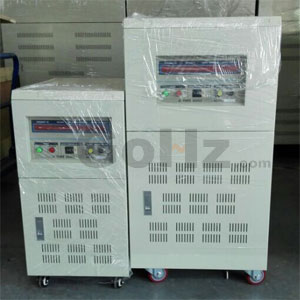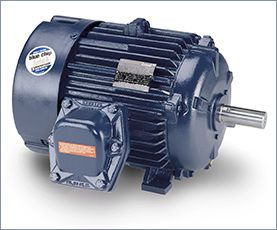Improve motor efficiency
There are areas of the system that can have a better return on investment. In actuality, ANY increase in system efficiency is preferred over the status quo, particularly as the population balloons and the demand on all resources - including energy - continues to grow.
I also happen to represent the viewpoint of the motor manufacturers.
What happens at the manufacturer is that the specification for equipment is written (by the end user, or some hired intermediary) around some operating point ... and most often, that point is the "full load" or "100 percent" rating of the machine. Therefore, the design effort goes into making that specified operating point the best possible in a variety of terms, including: optimizing material usage during manufacture, minimizing material and labor costs during manufacture, optimizing the spectrum of performance criteria (including efficiency at the specified operating point), maximizing overall equipment reliability, minimizing personnel hazards during manufacture and operation, and maximizing accessibility for maintenance purposes. Sometimes one choice benefits more than one result ... but far more often, there is a trade off between the benefits and some determination is made on what is most "important". And as we are all different human beings, so too does the heirarchy change from one consumer to the next.
The difficulty - as you've already noted - arises when the SPECIFIED performance requirement (i.e. full load) is not the same as the ACTUAL performance requirement.
Somewhere down the line, the interpretation of the efficiency equation is going to include the cost/energy associated with obtaining the rare earth materials used for those types of machines as well ... just like the output from alternate fuels such as ethanol are beginning to be measured with respect to the energy required to produce them. I suspect that when this happens, the systems using rare earth materials (or other technologies) may not have the advantage that they seem to enjoy at the moment.
However - that is not to say that using them now is the wrong thing to do!
I also happen to represent the viewpoint of the motor manufacturers.
What happens at the manufacturer is that the specification for equipment is written (by the end user, or some hired intermediary) around some operating point ... and most often, that point is the "full load" or "100 percent" rating of the machine. Therefore, the design effort goes into making that specified operating point the best possible in a variety of terms, including: optimizing material usage during manufacture, minimizing material and labor costs during manufacture, optimizing the spectrum of performance criteria (including efficiency at the specified operating point), maximizing overall equipment reliability, minimizing personnel hazards during manufacture and operation, and maximizing accessibility for maintenance purposes. Sometimes one choice benefits more than one result ... but far more often, there is a trade off between the benefits and some determination is made on what is most "important". And as we are all different human beings, so too does the heirarchy change from one consumer to the next.
The difficulty - as you've already noted - arises when the SPECIFIED performance requirement (i.e. full load) is not the same as the ACTUAL performance requirement.
Somewhere down the line, the interpretation of the efficiency equation is going to include the cost/energy associated with obtaining the rare earth materials used for those types of machines as well ... just like the output from alternate fuels such as ethanol are beginning to be measured with respect to the energy required to produce them. I suspect that when this happens, the systems using rare earth materials (or other technologies) may not have the advantage that they seem to enjoy at the moment.
However - that is not to say that using them now is the wrong thing to do!
<- - Make a Comment - ->

 Servo Motor & Drives
Servo Motor & Drives

